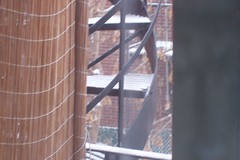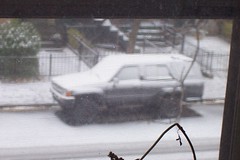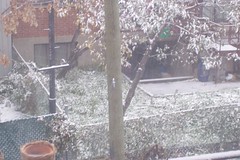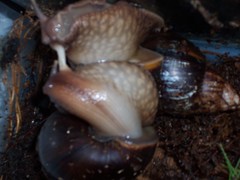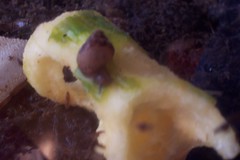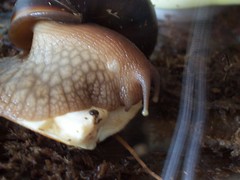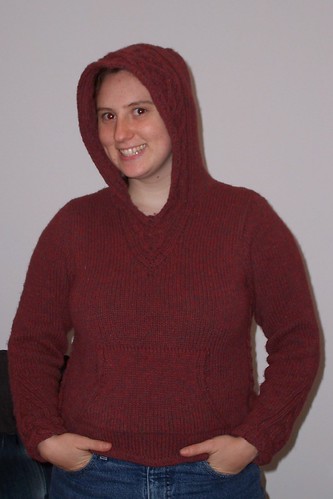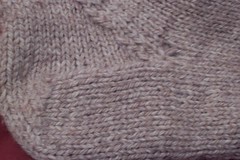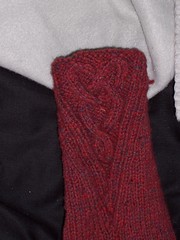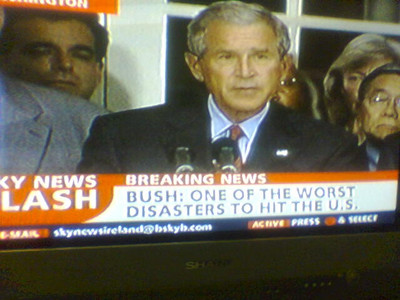
Nominee, Best Post
I don't know if it's only recently come to my attention, or if there has actually been an increase in recent years, but it seems to me that science is under attack in the USA. Despite having the good fortune not to live in that country, I nonetheless feel that I have a certain responsibility, as an educated, reasonable member of this global village, to help my allies south of the border to defend this most precious technique against the attacks it has been the target of.
Why is the scientific method so precious? Because it is the *only* way we have of really knowing things. Without the scientific method all we have are
superstition and
common sense, neither of which have particularly good track records with getting things right. The scientific method, on the other hand, with its emphasis on testing and evidence, has an excellent track record. One might even say that "getting it right" is defined by the scientific method.
For a comprehensive definition of the scientific method, I suggest you read Wikipedia's
page on the topic, but I'll give the gist of it here:
- You start off with observation. You see what's going in the world and you notice patterns, or interesting and unexpected deviations from patterns. You collect information on these patterns until you feel you have enough information to move on to step 2, which is...
- Formation of a hypothesis. This is where you use the information available to you to make an educated guess about why or how the things you observed happen. Now you need to...
- Test the hypothesis. A hypothesis is only as strong as the predictions it makes, and a hypothesis that only seeks to explain given observations without making any predictions about what further observation will reveal has no value at all. (We who are interested in actual evidence call these hypotheses "just so stories," with a hat-tip to Rudyard Kipling.) What your hypothesis should do is give you some idea of what to observe next, and how to go about observing it (again, for examples see the wiki article). It is very likely that, once you've performed these new observations, you will find that your data doesn't jibe 100% with your hypothesis. That means it's time to...
- Revise your hypothesis. See if you can come up with a (testable) idea that explains your new data while still being consistent with your old data. And once you've done that, you go back to step 3.
Now, what a lot of people don't seem to understand is that you never stop repeating steps 3 and 4. There is no point at which a hypothesis is considered proven and observation and experimentation can stop. What
can happen, however, is that experimental data can bear out a hypothesis's predictions over and over, so many times, with so little need for revision, that it becomes very hard to believe that a reproducible experiment will ever be performed that disproves the hypothesis. At this point the hypothesis can graduate to the rank of theory. It becomes accepted as true by a majority of members of the field, and it can be used as a jumping-off point for new hypotheses. However, it remains falsifiable. It
always remains falsifiable.
Now, I hope I don't have to explain why this technique is so damned important, and what a shame it will be if a majority of Americans reject it outright, and explicitly accept the practice of creating public policy based on conclusions not reached through this technique. I hope I don't have to explain why it's so important that children be taught this technique in school. Be taught that conclusions reached through this technique are superior to conclusions reached through other methods. I hope I don't, but if I do please say so. I'll be happy to oblige with another post.
It's with this in mind that I've weighed into the evolution/creation debate. My goal is not, and has never been, to
convince creationists that they are wrong. My goal is to reach those who are undecided. Those who are at risk of being convinced by the arguments of creationists (arguments that, with their logical fallacies and factual errors, can seem quite sensible on the surface). I hope to do my part to create a more scientifically literate populace, which is, in the end, the
only thing that will keep creation "science" and other such nonsense out of government, and out of the schools. Call me crazy, but I'm convinced of the capacity of science to build a better world.

